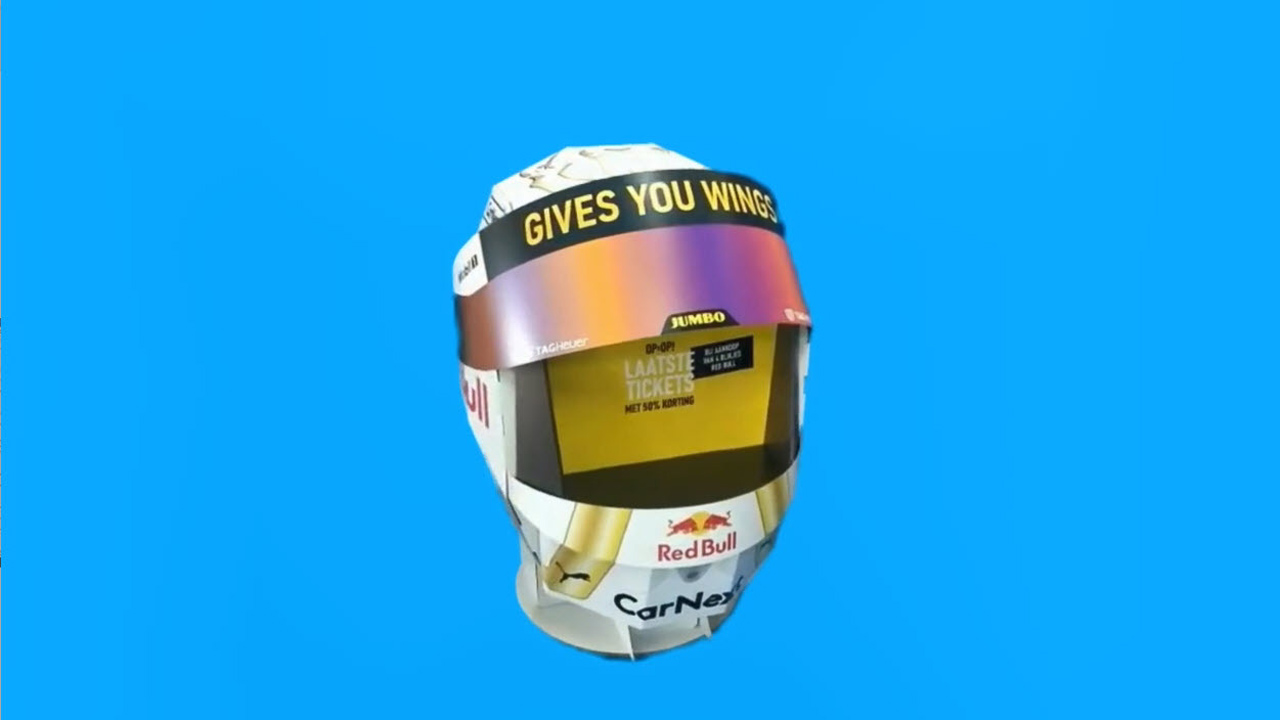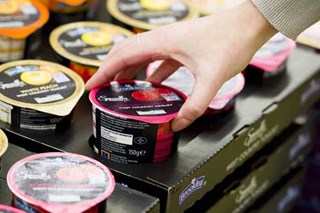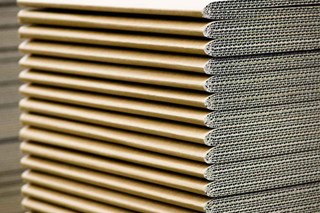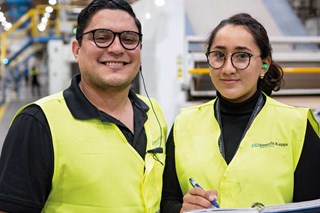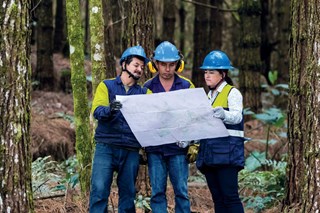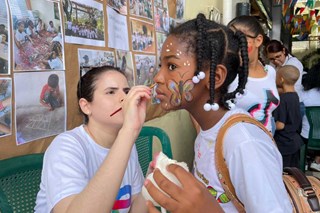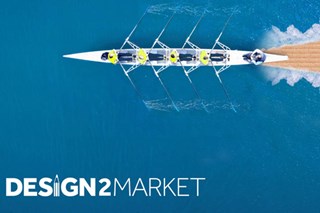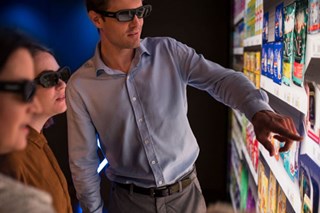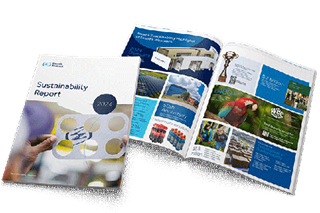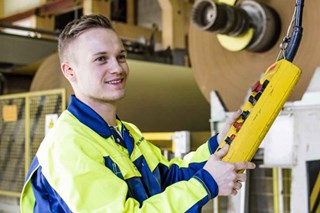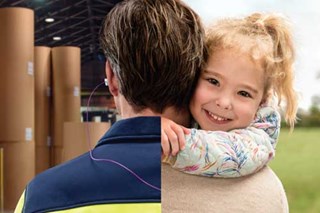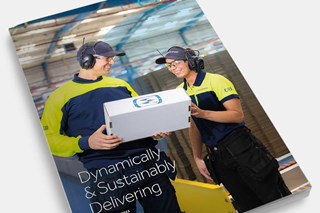Summary
The globally recognised energy drink brand Red Bull sought to create a cardboard replica of Max Verstappen’s iconic Formula 1 helmet, replacing their previous plastic version. While this exciting project sparked the creativity of our designers, it also presented significant challenges, particularly in shaping the helmet’s curved structure and developing the intricate artwork, all whilst ensuring the display remained both functional and sustainable. The final result was a visual masterpiece, with the Red Bull team delighted by not only the striking appearance and craftsmanship but also the sturdiness, which extended the product’s lifespan as an in-store display.
The Challenge
During a visit to Red Bull's headquarters, our team noticed a plastic replica of Max Verstappen's F1 helmet. Inspired by this, we proposed a more appealing and sustainable alternative—replacing the plastic helmet with an eco-friendly version made from corrugated cardboard. Intrigued, Red Bull presented our Smurfit Kappa team with a challenging question: Could we create a fully round helmet using corrugated cardboard, a material not typically suited to that shape?
This challenge sparked an in-depth planning process, where our design team explored various methods to successfully achieve the round shape while maintaining the same appearance as the plastic version. However, the task went beyond simply replacing plastic; it was about creating an eye-catching point-of-sale (POS) display that would both reflect Red Bull's brand identity and push the boundaries of eco-friendly design.

The Approach
To tackle the challenge of creating a round object from cardboard, the design team experimented with several mock-ups. They began by constructing a skeleton structure using double-wall corrugated board, which was then covered with precisely measured pieces of cardboard. This approach ensured the helmet's curves could be formed without compromising the material's structural integrity. The complexity arose from the fact that each section of the frame had different heights, requiring exact measurements. After numerous iterations, a final design was developed, which also included a designated space to potentially integrate Red Bull products.
Alongside the structural challenges, our team took on the creative task of designing the helmet’s artwork. The in-house team meticulously studied the original helmet to create a design that would align perfectly with its three-dimensional form. Working directly with the physical structure allowed for seamless integration of the artwork, a more efficient process than outsourcing to an external graphic design agency. The design was printed digitally, and seven cutting dies were used to shape the individual components.
As the product concept came to life, it became clear that there would also be logistical challenges, which were carefully considered throughout the design process.

The Result
The design of the corrugated helmets had to overcome significant logistical challenges, particularly in transporting such a large and complex product. Our team ensured the helmets could be stacked two high in a truck without damage. They also created bespoke sleeves and trays to preserve the helmets' shape, minimising space and maximising cost efficiency, ensuring the product arrived safely at its destination. Despite the technical challenges, Smurfit Kappa successfully delivered a stunning, fully round cardboard replica of Max Verstappen’s F1 helmet. The final product was not only an eco-friendly alternative to plastic, made from renewable, recyclable natural fibres, but also a striking piece of marketing material that showcased Red Bull’s leadership in creative branding.
Red Bull were thrilled with the results, which exceeded expectations and helped enhance their brand identity. The helmet was used as an eye-catching point-of-sale display across the Jumbo supermarket chain, a Formula 1 team sponsor. By choosing not to place products inside the helmet, Red Bull ensured the display maintained its shape, allowing it to remain on the shop floor indefinitely, far exceeding the typical three-week lifespan of POS materials.
The project highlighted the importance of internal collaboration between our teams in Zedek, Netherlands, focusing on innovative problem-solving and our commitment to sustainability. Through this close cooperation, meticulous design, and creative artwork, Smurfit Kappa produced a one-of-a-kind display that aligned with Red Bull’s brand ethos, reduced the need for plastic, and left a lasting impression.
